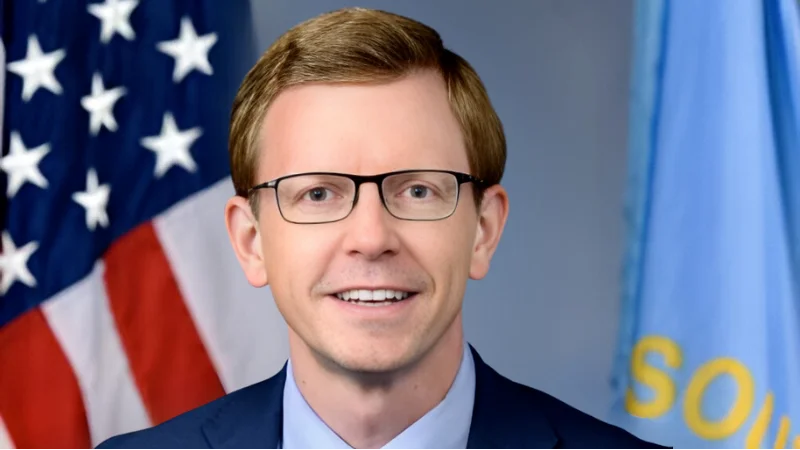Rep. Dusty Johnson, U.S. Representative for South Dakota | Congresman Dusty Johnson Official U.S. House Headshot
Rep. Dusty Johnson, U.S. Representative for South Dakota | Congresman Dusty Johnson Official U.S. House Headshot
Legislation featuring a provision by U.S. Representative Dusty Johnson aimed at modernizing the environmental review process under the Clean Water Act has passed the House Transportation and Infrastructure Committee with a vote of 34-30.
"Clean water is essential for economic growth, but the Clean Water Act imposes overly burdensome regulations and America’s permitting process is slow and antiquated," said Johnson. "My provision encourages states and localities to utilize an online dashboard to increase transparency and collaboration during these environmental reviews, all while improving efficiency."
House Transportation and Infrastructure Committee Chairman Sam Graves praised Johnson's efforts, stating, "Thanks to the reforms proposed by Congressman Johnson, this legislation will improve federal and state coordination, make the permitting process more efficient, and help ensure that infrastructure projects get done in a more timely manner. I commend him for his common-sense contribution to this bill and his leadership on this issue."
Johnson's provision promotes coordination between states and the Federal Permitting Improvement Steering Council (FPISC) regarding permit applications and requests for certification under the Clean Water Act. This includes processes related to National Pollutant Discharge Elimination System (NPDES) permits as well as dredge and fill permits.
The FPISC was established in 2015 through the Fixing America’s Surface Transportation (FAST) Act. It aims to enhance coordination among federal agencies responsible for environmental reviews and authorizations. The council manages an online dashboard that tracks federal environmental review processes for significant infrastructure projects.
States are encouraged to engage with FPISC's online permitting dashboard program to improve efficiencies in Clean Water Act authorities' permitting processes. This initiative aligns with the cooperative federalism principle underlying the Clean Water Act, which assigns states a primary role in many permitting procedures.


 Alerts Sign-up
Alerts Sign-up